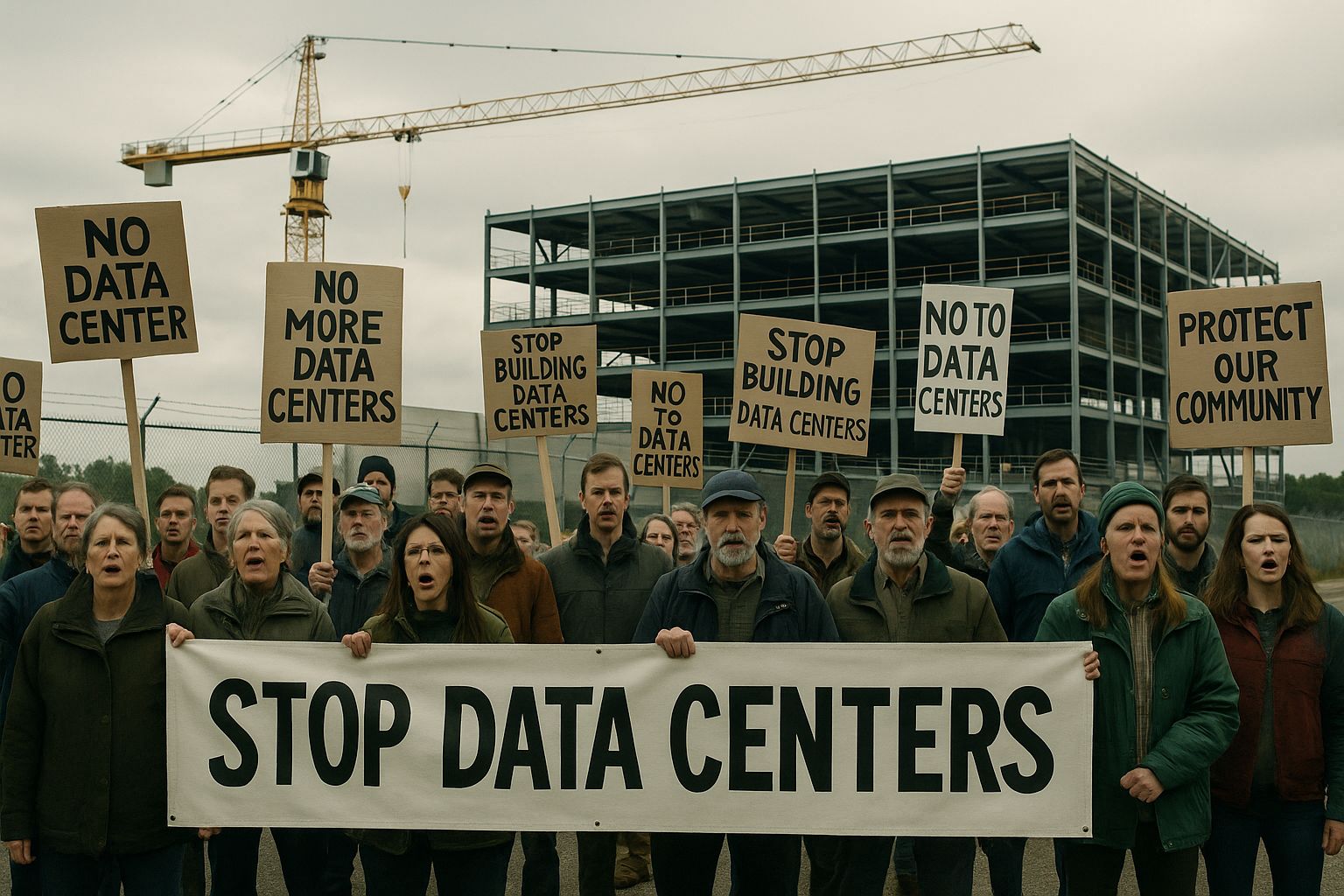- Nimitz Tech
- Posts
- Nimitz Tech - Weekly 10-20-25
Nimitz Tech - Weekly 10-20-25
Shutdowns in Washington, Showdowns in Tech

As Washington grinds deeper into a government shutdown, and with the goes on its fifth week of reccess, the gears of tech legislation have all but stalled. Yet beyond the Capitol’s gridlock, the forces shaping the digital future continue to accelerate — from Senator Ted Cruz’s campaign against Wikipedia’s “bias,” to a wave of AI-driven layoffs testing the limits of tech optimism, to California’s new rules for online age checks and global backlash over resource-hungry data centers. Even in a moment of political paralysis, the collision of technology, policy, and power is anything but idle.
In this week’s Nimitz Tech:
Knowledge: Sen. Ted Cruz accuses Wikipedia of “ideological bias,” demanding transparency from the site’s editors in a new front of the tech culture wars.
Monopoly: A massive Amazon Web Services failure briefly knocked out apps from Fortnite to Snapchat, reigniting debate over the fragility of U.S. cloud infrastructure.
Protest: From Ireland to Mexico, tech giants face mounting protests over AI data centers straining local power grids, water supplies, and public patience.
TECH NEWS DRIVING THE WEEK

In Washington
Ted Cruz has sent a letter to the Wikimedia Foundation, operator of Wikipedia, accusing the site of “systemic bias” toward left-wing sources and demanding internal documents about how it classifies outlets and polices ideological editing. Cruz points to research claiming Wikipedia lists CNN and MSNBC as “generally reliable” while placing Fox News as “generally unreliable.” The move fits a broader pattern of tech-platform oversight being framed as ideological oversight of “liberal bias” by Republicans. The Wikimedia Foundation replied that volunteers create the content and it stands by its editorial standards and independence. Why it matters: This is more than platform moderation—it’s about who defines “truth” online, who curates knowledge, and how government oversight might extend into ostensibly voluntary digital spaces. For tech policy watchers, it signals a shift: Wikipedia, long assumed neutral, is now squarely in the regulatory cross-hairs.
Tech CEOs are cutting thousands of jobs amid hopes that artificial intelligence will deliver major productivity gains — but the benefits remain uncertain. Companies like Salesforce, Microsoft, IBM, and Meta have reduced headcount, citing AI’s efficiencies, though employees report the tools often slow work rather than speeding it up. The layoffs risk undercutting President Trump’s pro-AI economic agenda, which promises that automation will create, not destroy, jobs. Experts warn that while AI could boost GDP, it may not translate into employment growth, raising political and business risks. Some executives argue firms should redeploy workers rather than shrink their workforce, while smaller startups see AI as a chance to compete by doing more with fewer resources.
National
A major outage at Amazon Web Services (AWS) triggered disruptions across dozens of websites and apps, including Snapchat, Fortnite, Venmo and others, caused by a DNS issue in AWS’s U.S.-East-1 region. The outage underscores how concentrated major digital infrastructure remains, and how one vendor’s kernel fault can cascade across seemingly unrelated services. This has policy implications: regulator attention on cloud-provider risk, vendor diversity, and resilience of internet backbone (and whether “too few companies control too much” is a systemic risk).
In California the state legislature passed (and the governor signed) a law, the Digital Age Assurance Act (AB 1043), requiring device-manufacturers (like Apple, Google) to collect users’ ages during setup and share age-bracket data with app developers to support age-appropriate experiences. The law doesn’t demand photo-ID uploads or parental consent in all cases, but it does place age-gating upstream in the device/OS layer rather than only at apps. It drew tech-industry support (Meta, Google) as more manageable than some previous proposals, but drew opposition from Hollywood/content-streaming interests (Motion Picture Association) and Apple. Why it matters: California again is moving fast, potentially setting a template for national policy. Age verification, device-level controls, platform liability — all of these could become national regulation. It also raises questions about implementation, privacy, and whether it will meaningfully protect minors or simply shift
International
The global AI boom has triggered a rush to build massive data centers, with U.S. tech giants like Microsoft, Amazon, Google, and OpenAI exporting their infrastructure buildout worldwide. While these sites promise jobs and investment, they’re straining local resources — consuming huge amounts of electricity and water, and worsening shortages in countries like Mexico, Ireland, and Chile. Communities near the facilities report blackouts, water outages, and environmental damage, sparking protests and new regulations in some regions. Governments eager for AI investment have often offered tax breaks and minimal oversight, allowing tech firms to operate through opaque subsidiaries with limited accountability. Activists warn the unchecked expansion could create an environmental crisis, as global data centers are projected to consume as much power by 2035 as all of India.
ADD TO THE NIMITZ NETWORK
Know someone else who would enjoy our updates? Feel free to forward them this email and have them subscribe here.
Additionally, if you are interested in our original publication on veterans affairs policy, check it out below:
|
